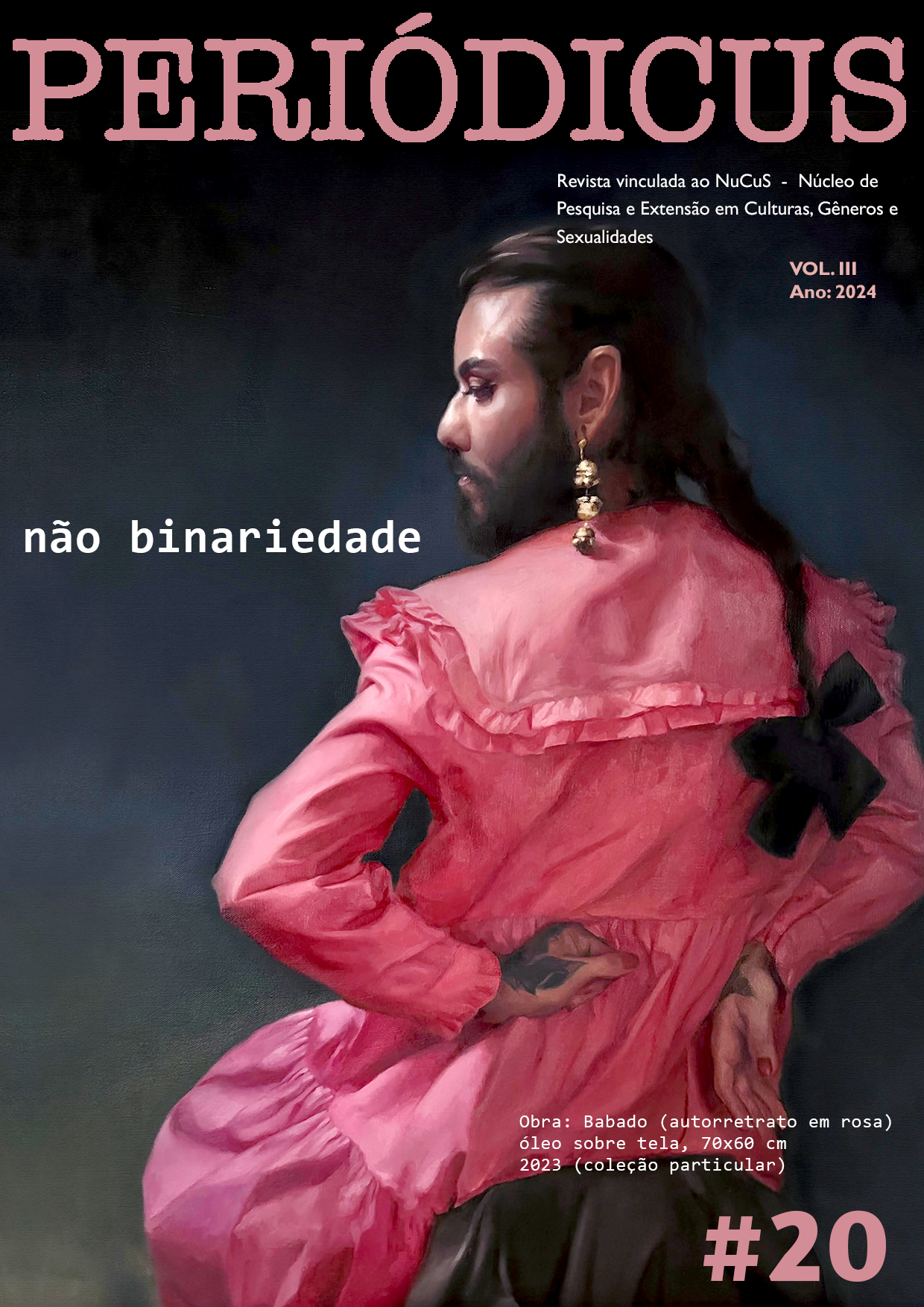Revisão sistemática acerca das relações de gêneros e sexualidades na educação básica brasileira, entre os anos 2001 a 2022
DOI:
https://doi.org/10.9771/peri.v3i20.56790Resumo
A presente pesquisa problematizou: “Quais são as temáticas dialogadas pelas pesquisas científicas brasileiras no tocante às relações de gêneros e sexualidades na educação básica?”. Nossa proposta foi de contribuir com os diálogos acerca dos estudos de gêneros e sexualidades, no âmbito da educação básica brasileira, por compreendermos a necessidade de se promover debates acerca da diversidade de gêneros e sexualidades nas instituições escolares brasileiras, como feito por Louro (1997), Asinelli-Luz (2008), Silva (2010), Miskolci (2012), Butler (2016), Paraíso (2016), dentre outros(as). Operacionalmente, realizamos a pesquisa de revisão sistemática em três bancos de dados, a saber: 1) Scielo; 2) BDTD; e 3) CAFe. Os resultados obtidos demonstraram que, entre os anos 2001 e 2022, 158 pesquisas foram publicadas sobre o tema gêneros e sexualidades na educação básica. Esses dados foram tematizados, a fim de sistematizá-los e realizarmos sua análise. No presente artigo, indicamos, com base nas citações e referências, as pesquisas que foram identificadas.
Downloads
Downloads
Publicado
Como Citar
Edição
Seção
Licença
Copyright (c) 2024 Ramon de Oliveira Bieco Braga, Cesar Alves de Meira Filho, Araci Asinelli-Luz

Este trabalho está licenciado sob uma licença Creative Commons Attribution-NonCommercial 4.0 International License.
Autores que publicam nesta revista concordam com os seguintes termos:
Autores mantêm os direitos autorais e concedem à revista o direito de primeira publicação, com o trabalho simultaneamente licenciado sob Licença Creative Commons Attribution Noncommercial que permite o compartilhamento do trabalho com reconhecimento da autoria e publicação inicial nesta revista, sendo vedado o uso com fins comerciais.
Autores têm autorização para assumir contratos adicionais separadamente, para distribuição não-exclusiva da versão do trabalho publicada nesta revista (ex.: publicar em repositório institucional ou como capítulo de livro), com reconhecimento de autoria e publicação inicial nesta revista.
Autores têm permissão e são estimulados a publicar e distribuir seu trabalho online (ex.: em repositórios institucionais ou na sua página pessoal) a qualquer ponto antes ou durante o processo editorial, já que isso pode gerar alterações produtivas, bem como aumentar o impacto e a citação do trabalho publicado (Veja O Efeito do Acesso Livre).








